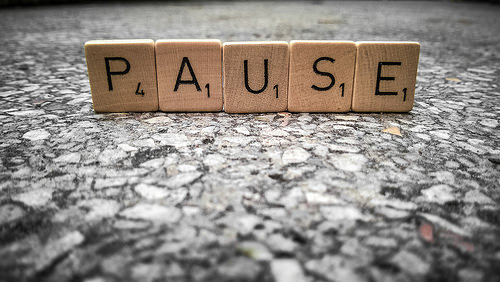While writing my cool ADHD mom post last week, I found several pages of tips for us ADHD parents.
However, as I opened tab after tab in my browser, I noticed a gaping hole. Enough with the cleaning and organizing tips. What about those larger-than-life emotions?
Some people go so far as to claim ADHD helps us create a loving, nurturing, exciting home life for our children. No parent needs ADHD to do that. I worry about subjecting my kid to the less romantic side of my ADHD: inconsistency, unpredictability, impatience, and a tendency to lose my temper.
And let’s be honest: nobody knows how to push our buttons like our kids, even if they don’t mean to (most of the time). Even the most put-together, mild-mannered parents will confess to all kinds of temper tantrums in their moments of weakness.
Often we feel our self-control slipping moments before a meltdown, yet we feel powerless to stop it.
I won’t claim to be an expert, but I’ve had my share of emotional outbursts. Reigning them in has been a pet project since I started the sixth grade.
Today I want to share one quick, tiny, simple trick to help get yourself under control.
It’s called mindfulness.
I’ve mentioned mindfulness meditation as a critical brain-training practice before, but don’t assume the benefits start and end with a a five-minute-a-day habit. Even if you never sit down to meditate, you can stop emotional outbursts in their tracks with mindfulness.
Here’s how you do it:
- Pause. Use your five senses to identify one thing in the room to focus on. Examples: your computer’s fan sound, the feel of a cool glass of water in your hand, a nice whiff from a jar of coffee beans. I’m most sensitive to sound, so I find something to listen to.
- Focus on that sensory input for 15 seconds, or as long as you can manage depending on the crisis. I like to close my eyes.
- If you notice your mind wandering to anything else — how angry you are at your kid for using permanent marker on the wall, the laundry you forgot to put in the dryer, a funny text you received from a friend, etc. — don’t give up and don’t judge yourself. Just return your full attention to that sound, smell, or sensation. Try your best to keep your mind empty.
- Open your eyes. Lower your voice. Try to deal.
That’s it. Try it now, while you have a moment and the stakes are low. What do you notice? Does it feel a bit like you’re in the eye of a hurricane?
Sometimes, that’s exactly what we need.
Shifting from your brain’s narrative circuitry to a state of mindfulness — a heightened awareness of sensory input from the outside world — forces your brain to change gears. Different brain regions become active and your prefrontal cortex takes a rest. You become more aware of your own inner state, which in turn gives you more control over your thoughts and actions. If you want to learn more about this without getting bogged down in too much science talk, check out David Rock’s Your Brain at Work.
Don’t forget to practice mindfulness with your kids, too! While sitting with my son during a recent emotional meltdown — being two isn’t easy, you know — I started talking to him about the sounds in the room. I took advantage of a short break in his tears to ask him, “can you hear the clock ticking? Tock, tock, tock, tock…” He met my eye and whimpered, “yeah.” I brought his attention to the wind who-whooo-ing outside his window. We sat together in lovely silence, just listening.
Quelling tantrums helps you in the moment, but teaching your kids to be mindful gives them tools to observe and regulate their own emotions later in life.
Next time you feel your self-control checking out, try a few seconds of mindfulness to step away from your mental noise. Then, share your experience in the comments so we can learn from one another.
Hey there! Are you enjoying The ADHD Homestead?
Here's the thing: I don't like ads. I don't want to sell your attention to an advertising service run by the world's biggest data mining company. I also value my integrity and my readers' trust above all, which means I accept very few sponsorships/partnerships.
So I'm asking for your support directly. For the cost of one cup of coffee, you can help keep this site unbiased and ad-free.
Below you will find two buttons. The first lets you join our crew of Patreon pals and pledge monthly support for my work. Patrons also have access to my Audioblogs podcast. The second takes you to a simple donation page to pledge one-time or recurring support for The ADHD Homestead, no frills, no strings. Do whichever feels best for you!



